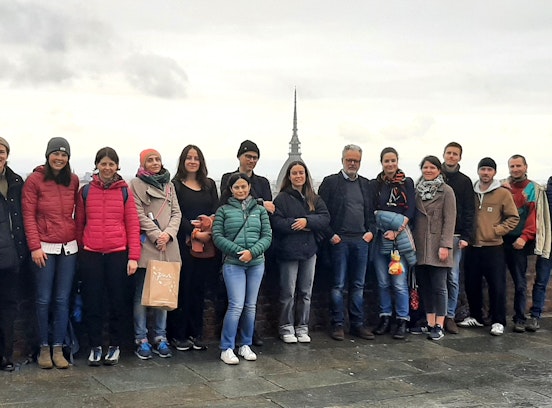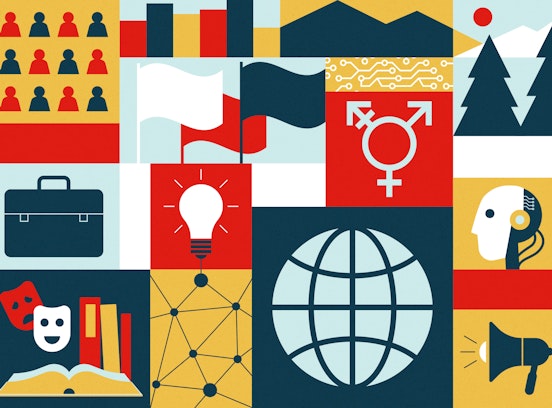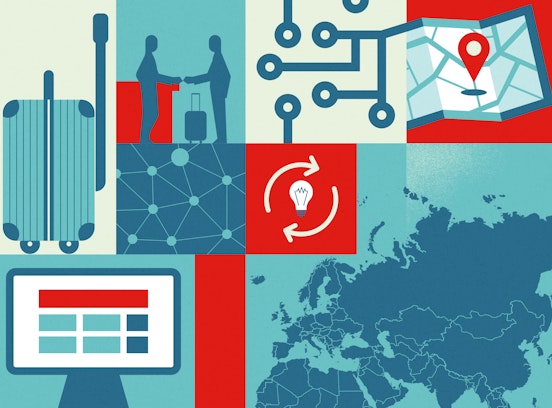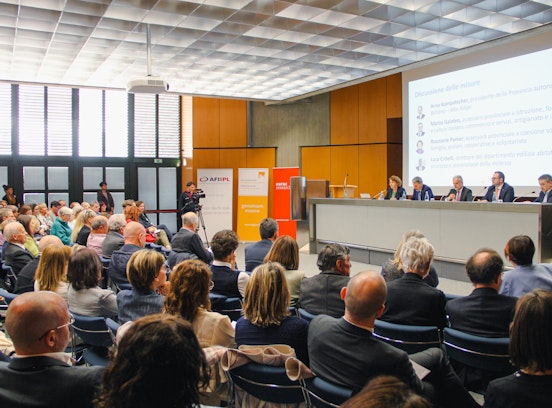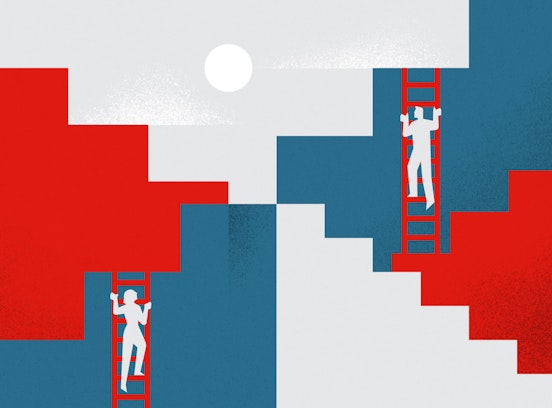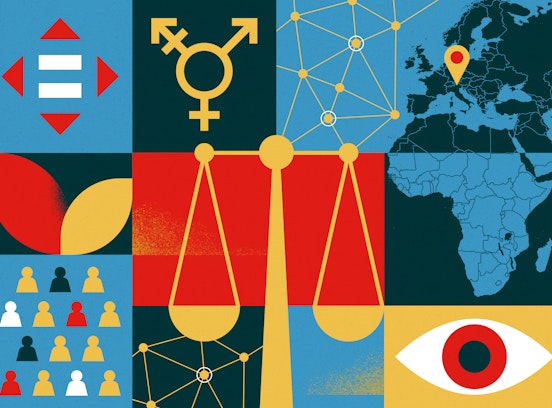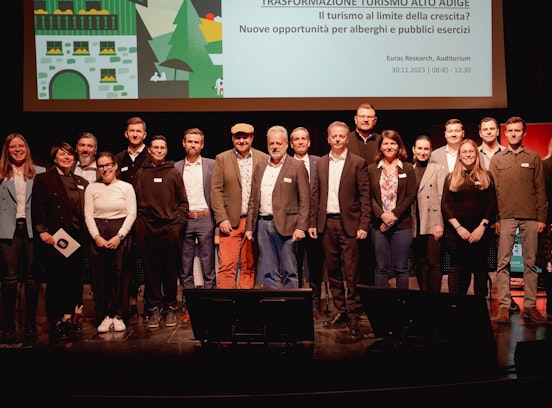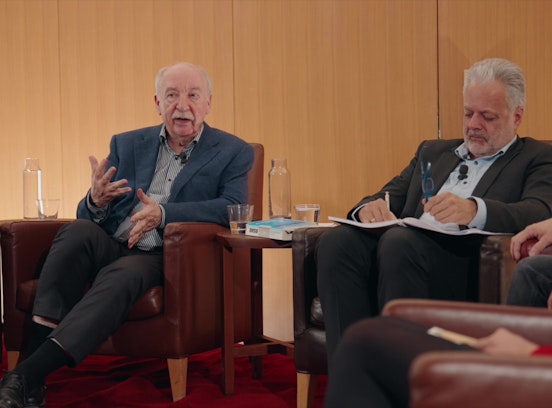Center for Advanced Studies - News & Events - How digitalisation is changing democracy and the economy
How digitalisation is changing democracy and the economy
Eurac Research, Steinbeis University and BASIS Vinschgau Venosta hosted an online conference in two acts: "Rethinking Democracy and Economy" and "Churburg Economic Talks 2.0"
- Deutsch
- English
- Italiano
As never before, the current pandemic has made it clear: Big Data, artificial intelligence and the internet are playing an increasingly important role in our networked world. Are we witnessing the end of democracy as we know it and the beginning of a digital democracy? And how does information technology influence our lives, work and economies? These questions were the focus of a two-day online conference on Thursday, 29 October and Friday, 30 October 2020.
"To live democracy in the digital age, we need a collective intelligence," physicist and sociologist Dirk Helbing is convinced. "If we succeed in organising this collective intelligence by means of digital platforms, we have little to worry about for democracy, as long as we simultaneously create new decision-making mechanisms to involve minorities more in the debate. This can help find solutions that also benefit a larger group." A crisis-proof organisation of democracy can only be achieved through diversity, he said. The goal must also be to reward innovation, to give it a voice and space, and to make it accessible to all. Helbing is Professor of Computational Science at ETH Zurich and was one of the guest speakers at the two-day conference "Rethinking Democracy and the Economy". What was originally planned as a hybrid event had to be rescheduled at short notice as an online-only conference. Actually fitting, since the lectures also dealt with the use of new digital possibilities.
Creative Leadership
Digitalisation and globalisation are often cited as triggers for people to doubt democracy. "The diversity of opinions is increasing, people have easier access to information and yet voter turnout is falling," Stefanie Kisgen, Professor of Leadership at Steinbeis University, pointed out in her lecture. What we need here is creative leadership, people who bring values into society, restore lost trust and do not act out of a greed for power. After all, society reflects back what is brought into it. Fabrizio Gilardi, professor of policy analysis at the Institute of Political Science at the University of Zurich, is convinced that technology enables the expansion of participatory possibilities. "The pandemic has once again highlighted the potential of digitalisation for voting as well. Nevertheless, we must not disregard the influence of social media and also the digital divide. Not all people have the access or the skills to participate in digital processes", he stressed.
Technology needs a legal basis
Every new development must be legally compliant and ethically justifiable, Yvonne Hofstetter, lawyer, essayist and honorary professor for digitalisation and society at the Bonn-Rhein-Sieg University of Applied Sciences, argued. "If we use technologies such as artificial intelligence to monitor machines, that is legitimate. Their use becomes problematic when it comes to monitoring people and thus legal subjects." For example, "people scoring", an online social credit system, is not only used in China, but also in Chicago, where AI was used to create lists of dangerous people - and this with raw data that was already racially charged per se. The result: nothing other than technological racism. Hofstetter is also critical of the decisions of ethics councils. People are basically free to recognise what is morally good or wrong. In this respect, there is no universal ethics in dealing with technologies. "What is legitimate must ultimately be a decision of parliament and not a decision of technology or ethics councils. Law manages expectations and always includes the freedom to oppose it, with the expected consequences. Coding, on the other hand, leaves no margin for decision."
In the subsequent discussion with Harald Pechlaner, Provincial Councillor Philipp Achammer also emphasised that the digital world should not be a lawless space and that the analogue level should not be lost in the digital world. Federico Giudiceandrea, President of the Entrepreneurs' Association of South Tyrol, predicted a kind of evolutionary transition from the analogue to the digital, who did not rule out the possibility that machines could act empathetically. Many things that make us human cannot be expressed with data, argued Dirk Helbing. A sustainable society could not be created by a superintelligence, but only by unleashing creativity and involving civil society. Suitable platforms are needed for this. Bishop Ivo Muser also emphasised that he was not worried about people in view of technological developments. Machines can be controlled, but not people.
Churburg Economic Talks 2.0
The second part of the conference once again took place as part of the Churburg Economic Talks 2.0. What influence can the sharing economy have on local economic cycles? What opportunities do small and medium-sized enterprises have in the face of the monopoly position of large digital corporations? Answers to these questions were offered by Dirk Helbing and Jonas Pentzien from the Institute for Ecological Economy Research Berlin. "Platforms are the number one winners of the crisis and it is not surprising that they are also among the most valuable companies worldwide," emphasised the expert on platform cooperativism. Digital conglomerates set the rules of their markets themselves, buy up competitors, subvert regulations and can limit access to information in time and space. In doing so, they create a centralisation of power that is unparalleled. Platform cooperativism, or platform cooperatives, can provide an alternative. They are characterised by collective decision-making, common ownership, solidarity and cooperation as well as a new understanding of innovation. Although one cannot assume that cooperative platforms will be able to replace the classical equivalents overnight, they nevertheless have enormous potential, such as the knowledge advantage at the local level, their democratic practice and the local and global networking via cooperative umbrella platforms.
Clothilde Sauvages, "Connector" of Ouishare, an international network for establishing new forms of cooperation, spoke of the need for a collaborative culture. Politicians and companies need new methods to interact with their environment. There is also a need for a new understanding of leadership, namely a dynamic leadership in that those persons who also have the competence for the respective activity have the legitimacy. The regional level has an important role to play, especially in the area of innovation. The pioneers of the digital age are not to be found in the metropolises, but at the local level. This is where the ideal conditions are found to actually implement cooperative ideas.
Room for new ideas
Impulses from South Tyrolean practice were also presented. Among others, Marlis Bertol, Rebecca Messner and Carmen Sigmund shared their experiences in setting up the AgriHelp initiative, a support platform for farms in South Tyrol within a very short time and out of acute necessity. David Smaniotto, Managing Director of the ARO Consortium, a platform for strengthening local crafts, emphasised that it takes great stamina to set up a local platform, but that it pays off 100 per cent. Armin Bernhard from the Obervinschgau citizens' cooperative underlined the need for decentralised experimental spaces. It is still the case that new ideas are either kept small or pressed back into the old system. Much more openness is needed here.
The first part of the conference on "Democracy Reloaded. Where does digitalisation lead?" was organised in cooperation with the Steinbeis School of International Business and Entrepreneurship (SIBE). The second part of the conference on "Economy and society in the digital age - an opportunity for local cycles?" was held as part of the Churburg Economic Talks 2.0 and in cooperation with BASIS Vinschgau Venosta.
Videos:
Rethinking Democracy and the Economy Democracy Reloaded - Where will digitalisation take us?
Rethinking democracy and economy: Democracy Reloaded - Where will digitalisation take us?
Podiumsdiskussion: Worin bestehen die größten Chancen der Digitalisierung für Wirtschaft, Gesellschaft und Politik?
Dirk Helbing: Digitale Demokratie: Wie wir unsere Gesellschaft upgraden können
Stefanie Kisgen: Leadership und Demokratie
Fabrizio Gilardi: Passen Digitalisierung und Demokratie zusammen?
Churburg Economic Talks 2.0: Economy and society in the digital age - an opportunity for local economies?
Dirk Helbing: Vom sozioökologischen Finanzsystem zur partizipativen Marktwirtschaft
Jonas Pentzien: Plattform-Genossenschaften - Alternativen für gemeinwohlorientiertes Wirtschaften in der Plattformökonomie?
Clothilde Sauvages: Ouishare - Towards a collaborative economy

